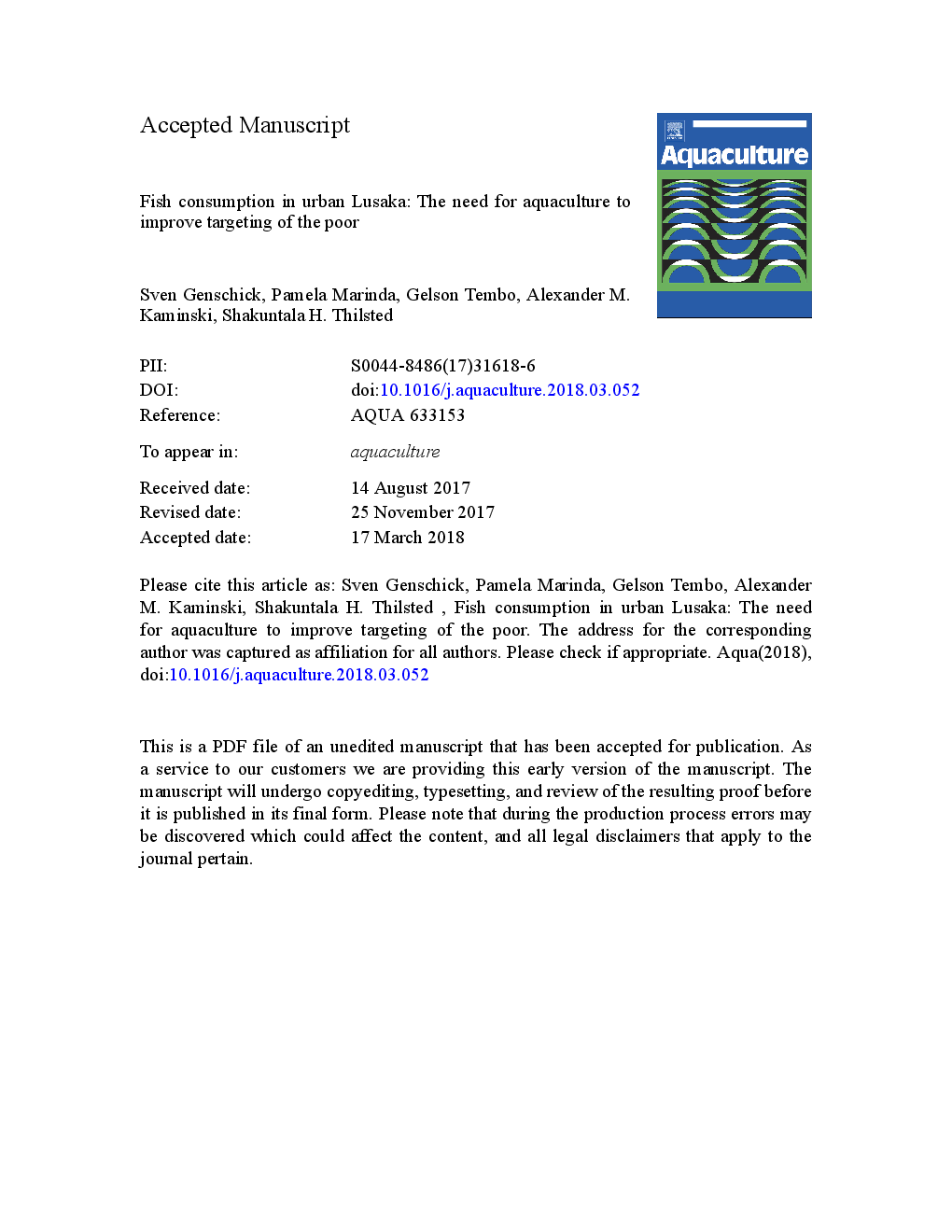ترجمه فارسی عنوان مقاله
مصرف ماهی در شهر لوساکا: نیاز به آبزی پروری برای بهبود اهداف فقرا
عنوان انگلیسی
Fish consumption in urban Lusaka: The need for aquaculture to improve targeting of the poor
| کد مقاله | سال انتشار | تعداد صفحات مقاله انگلیسی |
|---|---|---|
| 139800 | 2018 | 30 صفحه PDF |
منبع

Publisher : Elsevier - Science Direct (الزویر - ساینس دایرکت)
Journal : Aquaculture, Volume 492, 1 July 2018, Pages 280-289
ترجمه کلمات کلیدی
آبزی پروری، مصرف ماهی، امنیت غذایی، فقر، زامبیا،
کلمات کلیدی انگلیسی
Aquaculture; Fish consumption; Food security; Poverty; Zambia;

